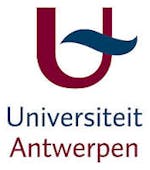
University of Antwerp

The University of Antwerp is a young, dynamic and forward-thinking university. It integrates the assets of its historic roots with its ambition to contribute positively to society.
The University of Antwerp develops, provides access to and disseminates scientific knowledge through research, teaching and service to society. It carries out these tasks in a spirit of academic freedom and responsibility.
The University of Antwerp espouses active pluralism. In that spirit, it stimulates critical research and teaching, reflection and debate on scientific, social, philosophical and ethical questions.
The University of Antwerp conducts creative and innovative scientific research which strives for international excellence. It stimulates both basic and applied research and their valorisation.
The University of Antwerp offers internationally accredited academic teaching based on scientific research. It aims at the development and integration of knowledge, skills and attitudes that will prepare its students to take responsibility in society.
The University of Antwerp stimulates public debate and greatly values its staff and students’ service to society.
The University of Antwerp is active in a global environment. It stimulates its staff and students international orientation.
The University of Antwerp is committed to the development of its city and region. With its partners in the Antwerp University Association, it takes responsibility for higher education in the Antwerp region.
The University of Antwerp attaches great importance to its close, historic links with Antwerp University Hospital and Antwerp Management School. It seeks constructive partnerships in the fields of research, teaching and academic service to society. In addition, the University shares its expertise with both public and private partners.
The University of Antwerp fosters diversity and offers its staff and students equal opportunities and maximum potential for personal development.
The University of Antwerp ensures the quality (education - research) and sustainability of its activities. Its contact with students, staff and other stakeholders is constructive, respectful and open-minded.
Links
Displaying 21 - 40 of 44 articles




















